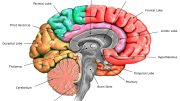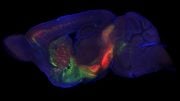
New research reveals that the brain’s movement circuits are surprisingly resilient to the loss of dopamine, a chemical crucial for movement, in the asymptomatic period of Parkinson’s disease. The study found that mice showed normal movement capacity despite almost no active dopamine secretion, suggesting that only low basal levels of dopamine are needed for brain activity, and symptoms of Parkinson’s appear when a minimum threshold is exceeded.
Were you or a loved one recently diagnosed with Parkinson’s disease? New research indicates that the disease may have been progressing quietly but insidiously for more than 10 years.
This study, conducted at the University of Montreal and published in the journal Nature Communications, provides new insights into the surprising resilience of the brain during the asymptomatic period of Parkinson’s.
In their study, a team led by UdeM neuroscientist Louis-Éric Trudeau demonstrated that movement circuits in the brains of mice are insensitive to an almost total loss of active secretion of this chemical messenger.
This observation is surprising because dopamine is a chemical messenger recognized for its importance in movement. And in Parkinson’s disease, dopamine levels in the brain drop inexorably.
“This observation went against our initial hypothesis, but that’s often the way it is in science, and it forced us to re-evaluate our certainties about what dopamine really does in the brain,” said Trudeau, a professor in UdeM’s Department of Pharmacology and Physiology and Department of Neurosciences.
Using genetic manipulations, Trudeau and his researchers eliminated the ability of dopamine-producing neurons to release this chemical messenger in response to the normal electrical activity of these cells.
As a doctoral student in Trudeau’s laboratory, Benoît Delignat-Lavaud expected to see a loss of motor function in these mice similar to what is seen in individuals with Parkinson’s.
But surprise! The mice showed a completely normal capacity for movement.
Measuring dopamine levels
Meanwhile, measurements of overall dopamine levels in the brain, carried out by UdeM trauma specialist Louis de Beaumont’s team at the Centre de recherche de l’Hôpital du Sacré-Cœur de Montréal, revealed that extracellular levels of dopamine in the brain of these mice were normal.
These results suggest that the activity of movement circuits in the brain requires only low basal levels of dopamine.
It is therefore likely that in the early stages of Parkinson’s disease, basal dopamine levels in the brain remain sufficiently high for many years – this, despite the gradual loss of dopamine-producing neurons. It is only when a minimum threshold is exceeded that motor perturbations appear.
According to the scientists, by identifying the mechanisms involved in the secretion of dopamine in the brain, this advance in Parkinson’s research could help to identify new approaches to reduce the symptoms of this incurable neurodegenerative disease.
Reference: “Synaptotagmin-1-dependent phasic axonal dopamine release is dispensable for basic motor behaviors in mice” by Benoît Delignat-Lavaud, Jana Kano, Charles Ducrot, Ian Massé, Sriparna Mukherjee, Nicolas Giguère, Luc Moquin, Catherine Lévesque, Samuel Burke, Raphaëlle Denis, Marie-Josée Bourque, Alex Tchung, Pedro Rosa-Neto, Daniel Lévesque, Louis De Beaumont and Louis-Éric Trudeau, 11 July 2023, Nature Communications.
DOI: 10.1038/s41467-023-39805-7









Be the first to comment on "Progressing Undetected for Years – Scientists Shed Surprising New Light on Parkinson’s Disease"